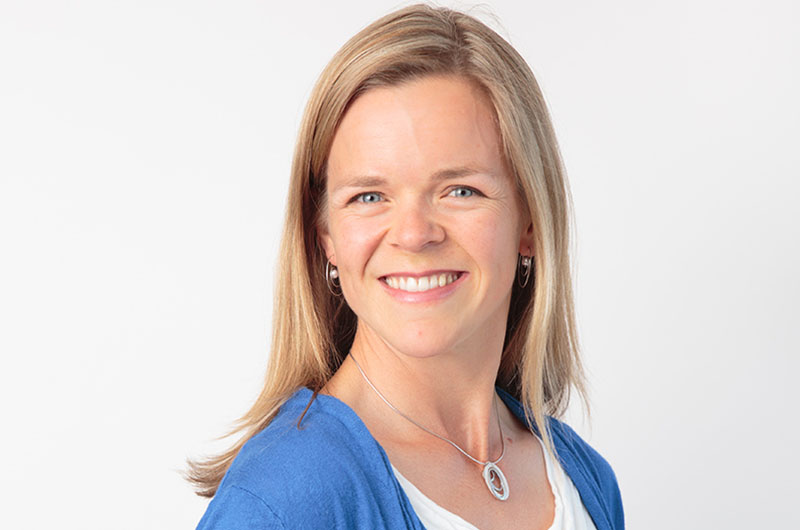Dr. Sarah Cook
Nov 1, 2016 - Profiles
Q&A with Dr. Sarah Cook, a family physician in Yellowknife, about resource stewardship in rural and remote areas of Canada.
Dr. Sarah Cook
Nov 1, 2016 - Profiles
Q&A with Dr. Sarah Cook, a family physician in Yellowknife, about resource stewardship in rural and remote areas of Canada.

Choosing Wisely Canada: How have you implemented Choosing Wisely Canada recommendations in your practice?
Dr. Sarah Cook: We are looking to implement a number of recommendations in our group and chose to start with deprescribing long-term proton pump inhibitors (PPIs) for eligible patients. Because we have a single electronic medical record (EMR), we can use it to capture prescribing data. This is a proactive, rather than reactive, approach to patient care—also known as “population health management.”
We had a summer student use the Choosing Wisely Canada “Bye-Bye, PPI” toolkit to design a self-audit tool that physicians could run in the EMR. The self-audit tool identified all patients taking a long-term PPI; the physician could then decide whether this was still an appropriate prescription or not.
This is a huge shift for us. Traditionally, we were much more reactive. This is the first time we have used a specific Choosing Wisely recommendation in the EMR for practice audit and quality improvement. It will inform other practice improvement projects in the future.
CWC: How have you brought the Choosing Wisely principles to your relationship with patients?
SC: With our population of patients living in rural and remote areas, we need to be even more mindful of stewardship of resources than those with urban populations do. Every decision has big cost implications for the system, and bigger social costs for patients because care can often involve travel. I find that my patients appreciate conversations about appropriateness, and Choosing Wisely has allowed me to have deeper conversations about patient priorities and goals of care. My patients appreciate understanding the rationale for why something is—or is not—being done. I think we have historically assumed that patients always want “more.” But I have not found this to be true. Patients do not want inappropriate tests or treatments, and I am always impressed with how open they are to having that conversation. Choosing Wisely has provided me with the confidence and tools to have richer conversations with my patients.
CWC: What does Choosing Wisely mean to you as a family physician?
SC: I work in a remote region with a diverse population, more than 50% of whom identify as aboriginal. Cultural competency for a diverse population fits very well with appropriateness—we need to provide the right type of care to the right patient, by the right provider, in the right place. We are thinking about how to apply Choosing Wisely principles very specifically to our context, and to branch out from the specialty-specific lists of recommendations to use Choosing Wisely principles as a lens for appropriateness generally. For example, if a non–family physician specialist consultation is needed, does a patient need to fly to Edmonton, Alta, for a consultation and blood tests? Can we do an online consultation or videoconference with the specialist instead?
Medical travel represents a substantial health expenditure in the territory. But it is much more than the cost of the airplane travel to move people over vast distances—it is the social cost to the patient and their communities. Travel takes patients away from their family, employment, support networks, and community. This has important personal and health consequences. We know that health outcomes for aboriginal populations are worse than those for the general population, making it even more important to consider appropriateness and cultural competence for that individual. We would like to develop tools and materials for both physicians and patients to help discuss when medical travel is necessary and when it is not.
This article first appeared in Canadian Family Physician. The interview was prepared by Dr Kimberly Wintemute, Primary Care Co-Lead, and Hayley Thompson, Project Coordinator, for Choosing Wisely Canada.
